FCI Syllabus
The released Food Corporation of India (FCI) recruitment notification of 4103 vacancies for Junior Engineer (JE) (Civil Engineering / Electrical Mechanical Engineering), Assistant Grade-II (AG II) (Hindi), Steno Grade-ii, Typist (Hindi) and Assistant Grade-III (AG III) (General / Accounts / Technical / Depot) providing a good opportunity to aspirants to apply for various posts.The start date to apply online is 28th February 2019 (from 10:00 AM)
Preliminary Examination
Section |
No. of Question |
Marks |
Duration |
Topic |
| Numerical Ability (Easy-Moderate) | 35 | 35 | 20min | Data Interpretation– Pie Chart Bar Graph, Tabular (10 Questions)
Missing Number Series– 5 Questions Approximation/ Simplification- (5-10 Questions) Arithmetic– (10-15 questions ) Percentage- (1-2 Questions) Profit /Loss- (1-2 Questions) Stream and Boat- (1-2 Questions) Time &Work- (1-2 Questions) Time, Speed & Distance– (1-2 Questions) Average – 1Question Ratio- 1 Question Age problem –1 Question Partnership – 1 Question mixture allegation- 1 question |
| Reasoning Paper (Easy-Moderate) | 35 | 35 | 20min | Puzzle- Circular Seating Arrangement(1 variable) ,Linear Seating Arrangement (1 Variable),Box-based puzzle (1 Variable),Scheduling Puzzle (1 Variable), Random Arrangement based puzzle (Approx- 15 Questions)
Syllogism– (Approx 5 Questions) Inequality – (Approx 5 Questions) Blood Relation– (Approx 2-3 Questions) Direction– (Approx 2-3 Questions) Alphabetical Series– (Approx 1-2 Questions) Numeric Series – (Approx 4-5 Questions) Coding Decoding- (Approx 2-3 Questions)
|
| English (Easy-Moderate) | 30 | 30 | 20min | Reading Comprehension- Approx-7-8 Questions (Recent News paper editorial)
Error Detection- 4-5 Questions Cloze Test- 6-7 Questions (Recent News paper editorial) Sentence Rearrangement- 5 Questions Single Filler- 5 Questions Sentence Rearrangement- 3-4 Questions Vocab based Errors- 5 Questions |
| Total | 100 | 70 | 1hr |
(Technical) (Mains)(Post Code-H)
Botany: Pteridology, Plant Pathology, Plant Genetics, Diversity, Ecology, , Respiration , Cell Biology: Tissue , Life Process: Photosynthesis, Circulation, Movement etc, Basics of Biochemistry Organ & Organ System, Genetics, Plant Classification,
Chemistry: The Structure of Solids, Gas-Phase Reaction, Alkenes, alcohols, aldehydes and acids, Inorganic Chemistry, Chemistry in daily life Chemical bonding, Organic Chemistry : Basics of alkanes,
Physics: Measurements, Basic Physics, Light, Electricity. The above syllabus for Agriculture, Botany, Zoology, Chemistry and Physics
Zoology: Ornithology, Primatology Organ System, Heredity & Variation, Animal Classification, Micro Organism, Insects & Rodents, Animal Cell & Tissue.
Agriculture: Elementary entomology, Plant Protection, Agricultural Economics Statics of Indian Agriculture (Cereals & Pulses),
Assistant Grade-III (Accounts)(Mains) (Post Code G)
Basic Accounting concept including preparation of any E-BOOK or Hard books of accounts. (Income Statement, Balance Sheet, Statement of Cash Flows ETC)
Taxation including Income Tax and Goods and Services Tax. (GST, Sales tax, Property tax, Estate tax, Income tax, FICA tax, etc.).
Auditing: – Auditing concepts and methods, Internal & External audit of companies.
Commercial Laws: (Basic Knowledge) : Basics of Contract Act, Basics of Company Act, Basics of Sales of Goods Act, Negotiable Instrument Act, Companies law, Corporate law, Corporate governance, Competition law (antitrust), Consumer protection, Contract law, Environmental law, Intellectual property law, Copyright law, Patent law,ETC.
Basic of computer- Internet, Email.,Hardware, Software Concepts, Word Processing. Formatting, Presentations, Graphics. Multimedia, Spreadsheets, Operating System, Browsers, Email, Memory (Internal, External, portable), Chats, Office (Word, PowerPoint, Excel), Networks, ETC.
Junior Engineer (Civil Engineering) (Mains) (Post Code A):
Building Materials: Physical and Chemical properties building stones, cement (Portland), Asbestos products, Timber and Wood based Products, laminates, bituminous materials, paints, varnishes etc.
Surveying: Principles of surveying, plane table surveying, theodolite, leveling and contouring, curvature, permanent adjustment of dumpy level, methods of contouring, tachometric survey etc.
Soil Mechanics: void ratio, porosity, saturation, water content, specific gravity of soil grains and unit weights, grain size, Atterberg’s limits, soil classification, plasticity chart, permeability, consolidation of soils. Lab tests, moisture content, bearing capacity of soils, plate load test, standard penetration test etc.
Estimating, Costing and Valuation: Estimate, analysis of rates, earthwork, Brick, RCC work shuttering, Painting, Flooring, Plastering flexible pavements, Tube well, isolates and combined footings, Steel Truss, Piles etc.
Transportation Engineering: Types of pavements, pavement materials – aggregates and bitumen, Design of flexible and rigid pavements, bituminous construction, rigid pavement joint, pavement maintenance, Railway Engineering. Environmental Engineering: Quality of water, purification, distribution, sanitation, sewerage and sewage treatments.
Building Materials: Physical and Chemical properties building stones, cement (Portland), Asbestos products, Timber and Wood based Products, laminates, bituminous materials, paints, varnishes etc.
Structural Engineering: -Theory of structures, bending moment and shear force diagrams retaining walls, eccentric loads, slope deflection, critical load and columns, torsion etc. Concrete Technology: Latest technology and uses of concrete, water cement ratio, workability, mix design, placement, compaction, finishing and curing of concrete, quality control of concrete, repair and maintenance of concrete structure etc.
Steel Design: Steel design and construction of steel columns, beams, roof trusses, plate girders.
RCC Designs: RCC flexural strength, shear strength, bond strength, design of single reinforced beams, retaining walls, water tanks (RCC design questions may be based on both Limit State method and Working Stress method).
Construction Management: Construction scheduling Bar Chart, CPM and PERT etc.
Junior Engineer (Mains) (Electrical Mechanical Engineering) (Post Code B)
Basic concepts, Concepts of current, voltage, power, energy and their units, Circuit law, AC Fundamentals, Measurement and measuring instruments, Electrical Machines, Synchronous Machines, Generation, Transmission and Distribution of power in different power stations, Estimation and costing, Utilization of Electrical Energy, Basic Electronics, Theory of Machines and Machine Design, Engineering Mechanics and Strength of Materials, Thermal Engineering, Air standard Cycles for IC engines, Rankine cycle of steam, Air Compressors & their cycles, Boilers Refrigeration cycles, Production Engineering.
You Can Also Check this:

